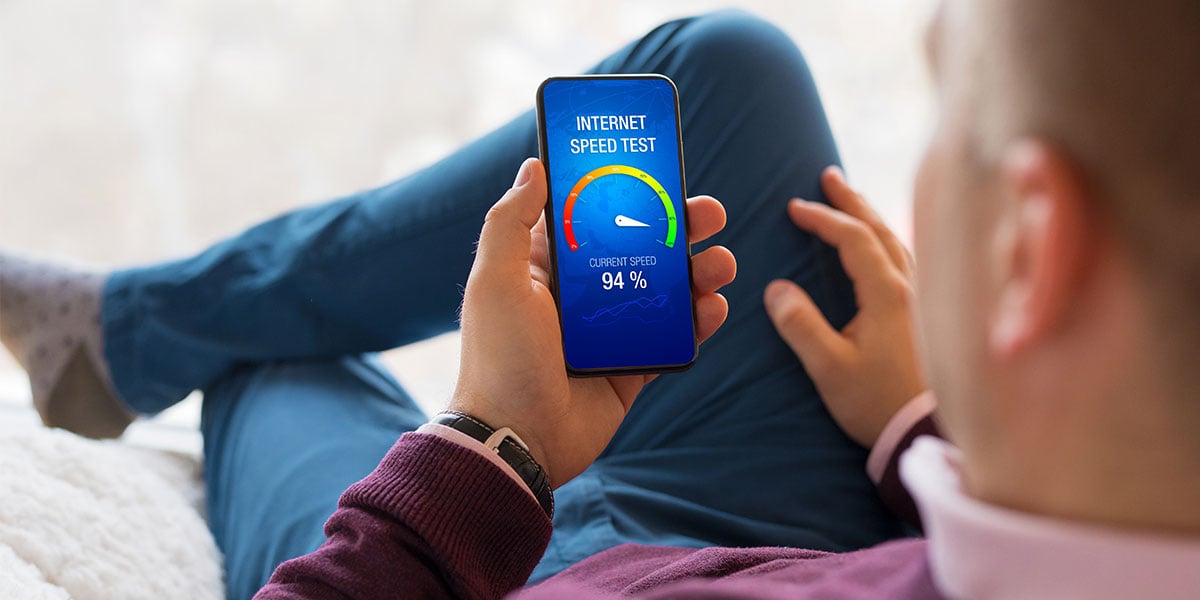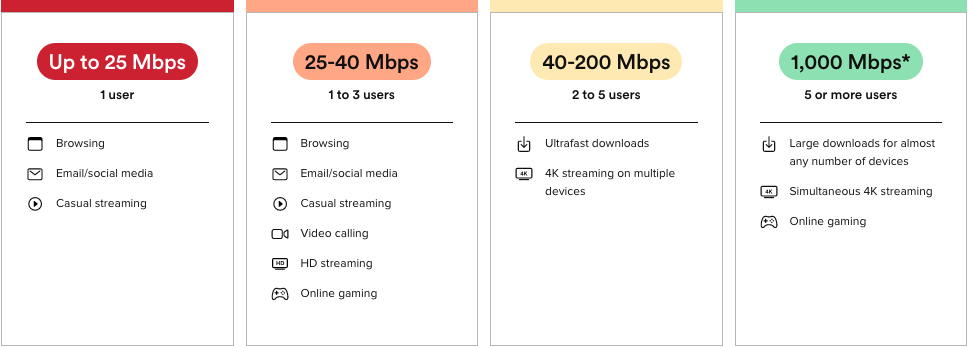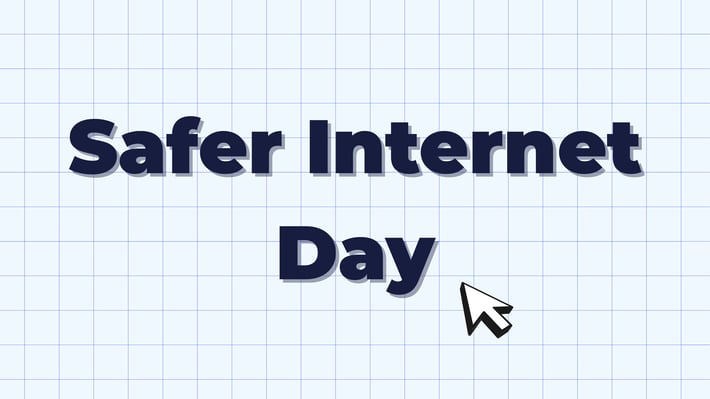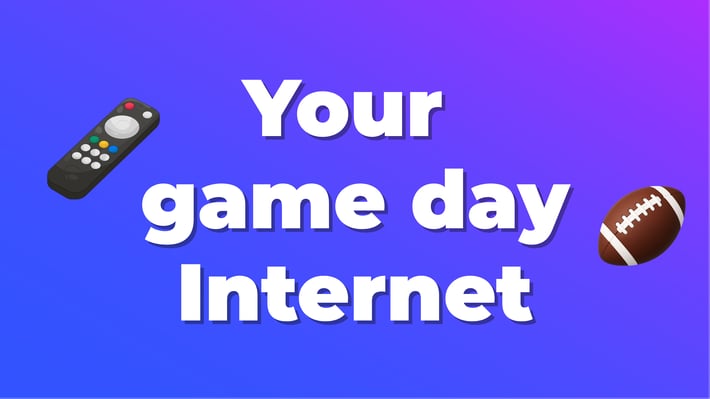
What your internet speed test results really mean
Looking for a better understanding of internet speed test results? We break down the mysteries of download speeds, upload speeds, bandwidth and much more.
You can tell a lot about your internet plan and what it offers by running a quick speed test. And when you see your results, you’ll notice some internet jargon, like ping and jitter, with numbers next to them. If you’re unsure about what those results really mean, you’ll want to read on. We’re here to break down the mysteries of what internet speed test results really mean. Plus you’ll get to find out what kind of internet speeds can lead to a smooth streaming experience.
First, let’s look at some terms you’ll see—an internet speed test glossary if you will.
Download speed
This determines how fast you can receive data, which includes viewing websites and streaming music. When you’re downloading that new app or game, a higher download speed means you’ll get it onto your device faster. Faster speeds also allow you to stream high-quality media with fewer interruptions.
Upload speed
This is how fast you can send data, like photos or documents. Sending those work files, posting videos online and transmitting your side of a FaceTime call all benefit from fast upload speeds.
Ping
Measured in milliseconds (ms), ping refers to how long it takes for a data packet to travel from your device to the provider's server and receive a response. High ping can result in lag and is usually caused by network congestion at the service provider level.
Jitter
Jitter refers to the variability in your high and low ping and is best kept low to avoid lag. Jitter is not really noticeable when reading text, but high jitter can result in buffering and other interruptions during gaming or streaming.
Mbps
Standing for megabits per second, 1 megabit is 1 million bits of information. This is a standard measure of internet speed—not to be confused with megabytes (MB), which is a measure of size rather than bandwidth.
Bandwidth
The maximum amount of data that can be transmitted over an internet connection in a given time, bandwidth is typically measured in bits per second (bps). A higher bandwidth means that more data can be transmitted at once, resulting in a smoother online experience.
If you’d like to get into more detail with these definitions, you should definitely check out our help center where we offer more examples to help you understand the numbers you see on your screen.
What’s a good internet speed?
Your ideal internet speed depends on what you plan to do online. Some people can get away with fewer Mbps, while others may need more. Let’s break it all down.

*Ting Internet’s 1,000 Mbps plan is designed to handle 20+ devices seamlessly, even when your entire family uses the internet at the same time.
Fiber internet with Ting
Ting Internet is fiber optics from A to Z. Whereas other providers may use aging copper wiring, fiber is faster and regarded as more stable. Fiber is purpose-built for the internet!
It's symmetrical
Virtually all internet providers offer an asymmetrical connection—that's where uploading is significantly slower than downloading. For example, 25 Mbps down / 5 Mbps up is a common plan. Your ability to send information out is (in this example) five times slower than your ability to receive information.
Ting offers symmetrical Gigabit:
Symmetrical = the same download speed as upload speed
Gigabit = 1,000 Mbps
Ting plans = 1,000 Mbps download and 1,000 Mbps upload
What can I do with 1,000 Mbps?
Everyone uses the internet differently, so there's no one correct answer here. In general, though, your internet connection is shared by everyone in your house, and each device that connects to it affects the speed for everyone else. One key benefit of a gigabit connection is that multiple devices can each be doing bandwidth-intensive tasks at the same time without bogging each other down.
Joey could be downloading a 50GB PlayStation 4 game and Ross watching YouTube in 4K on his high-end desktop computer while Chandler, Rachel and Phoebe are each watching HD Netflix movies on their own tablets. Even if Monica is on a video conference call with her parents with a large cooking video uploading in the background, each wouldn't slow down the other because of the large amount of bandwidth available with fiber.
Tired of endless buffering?
A reliable fiber internet connection is essential for a great online gaming experience, seamless streaming and improved business operations. Ting fiber internet offers just that—lightning-fast speeds and stability that won't let you down.
Ready for fiber internet? Check your address and find out if Ting is available in your area.
.png?length=710&name=Blog%20banners%20(27).png)

